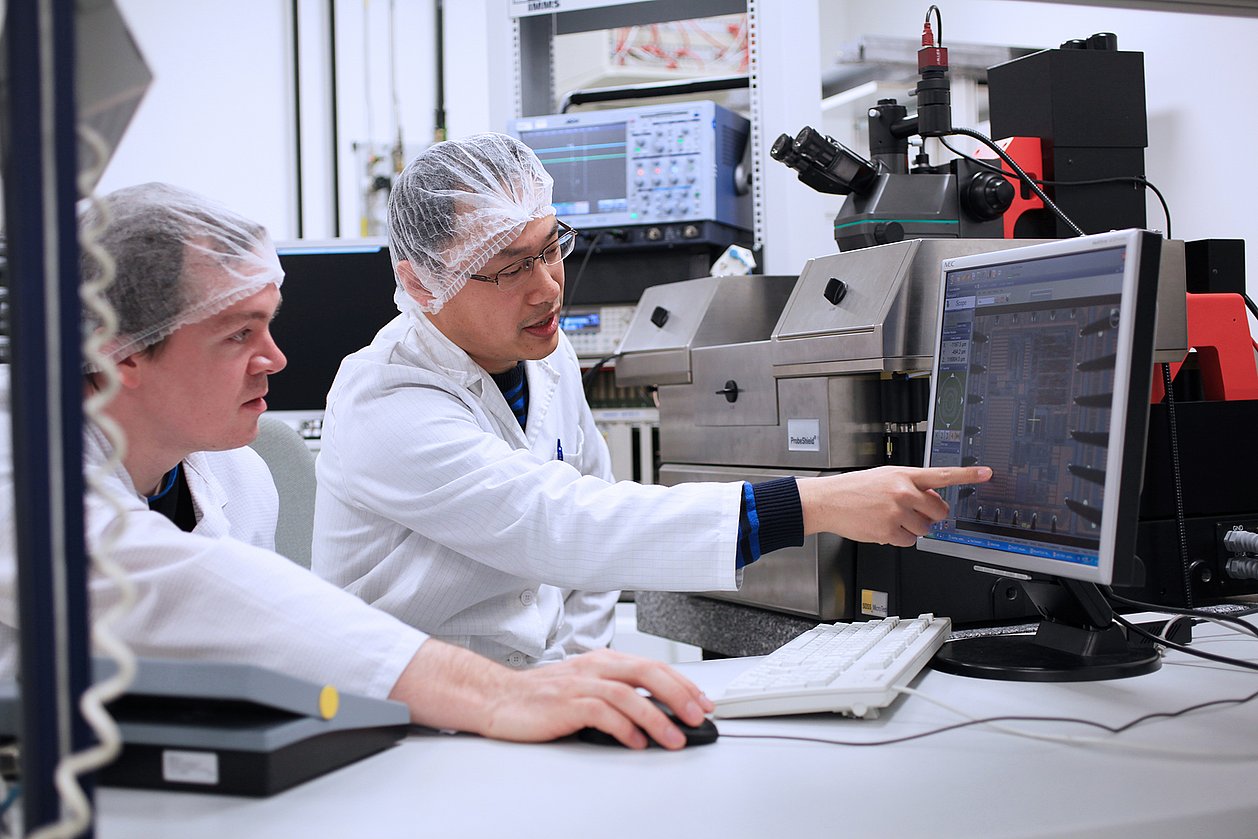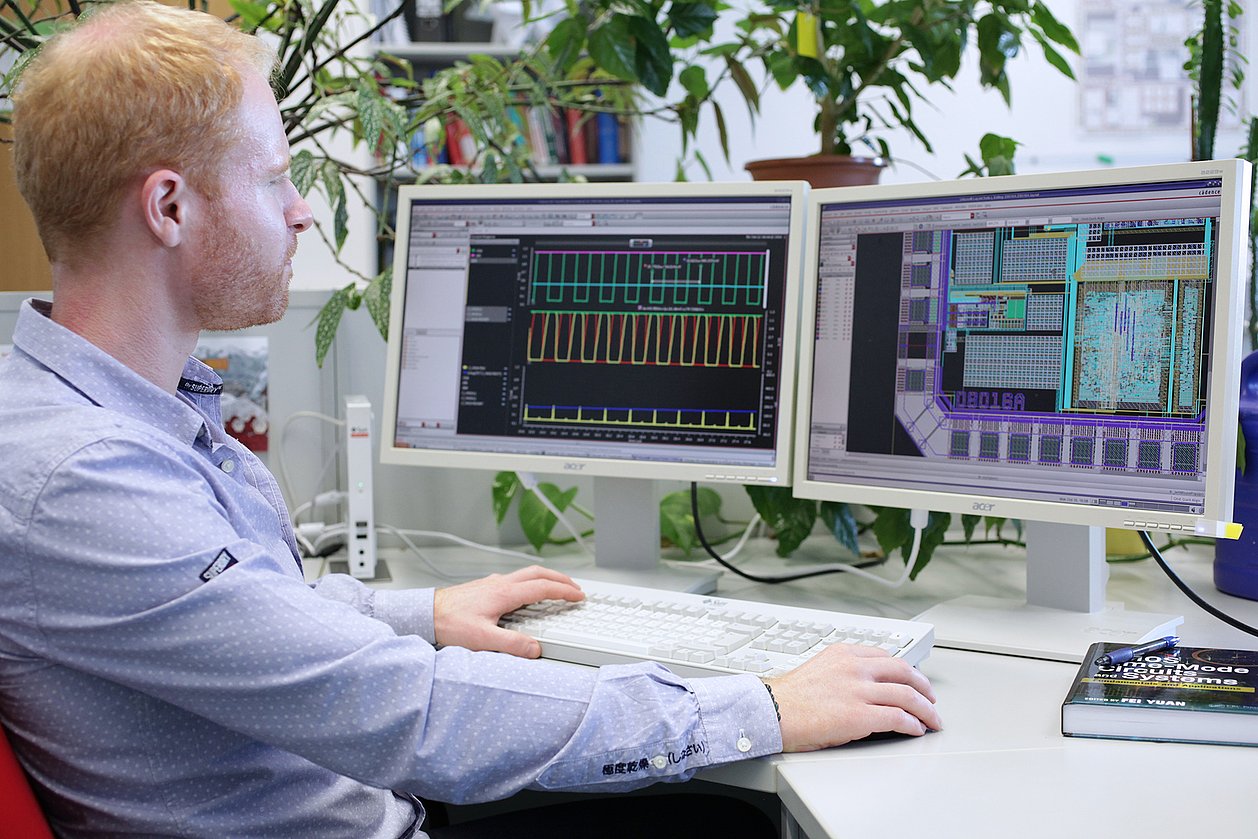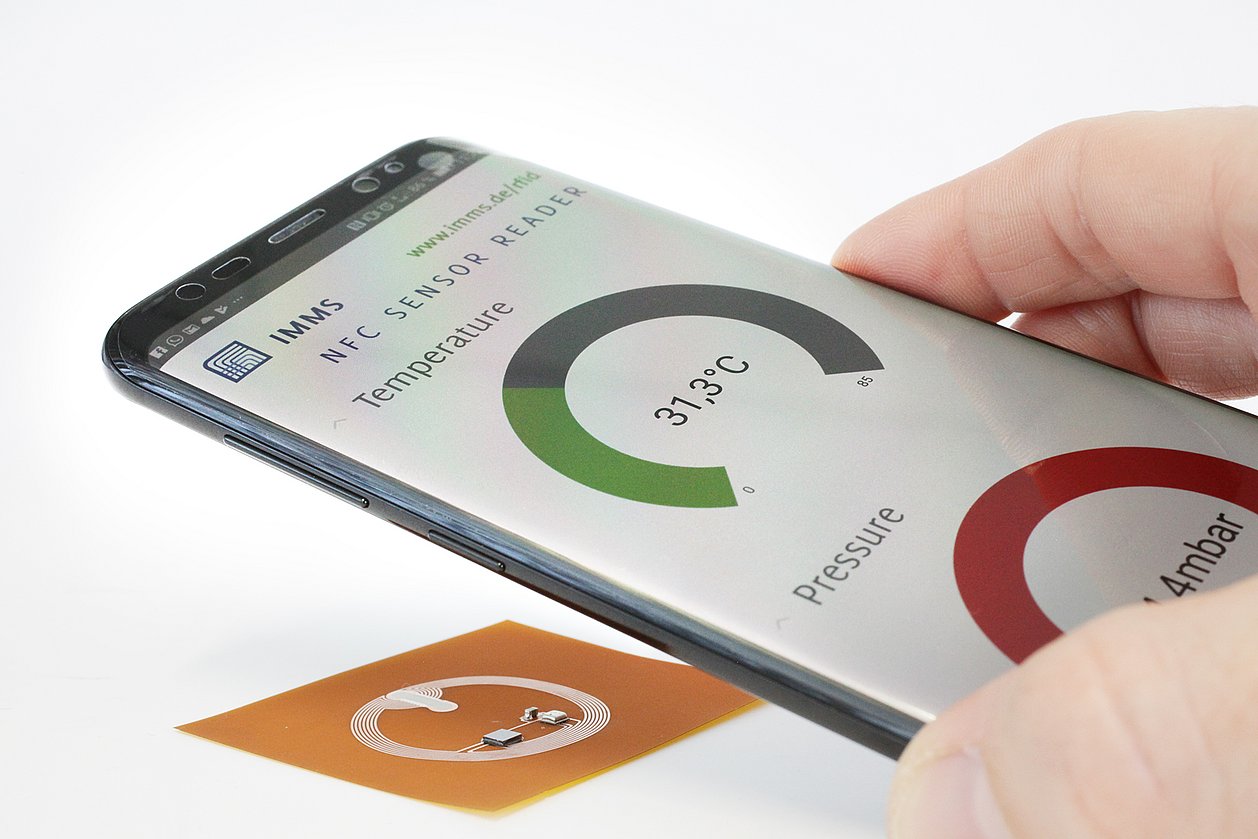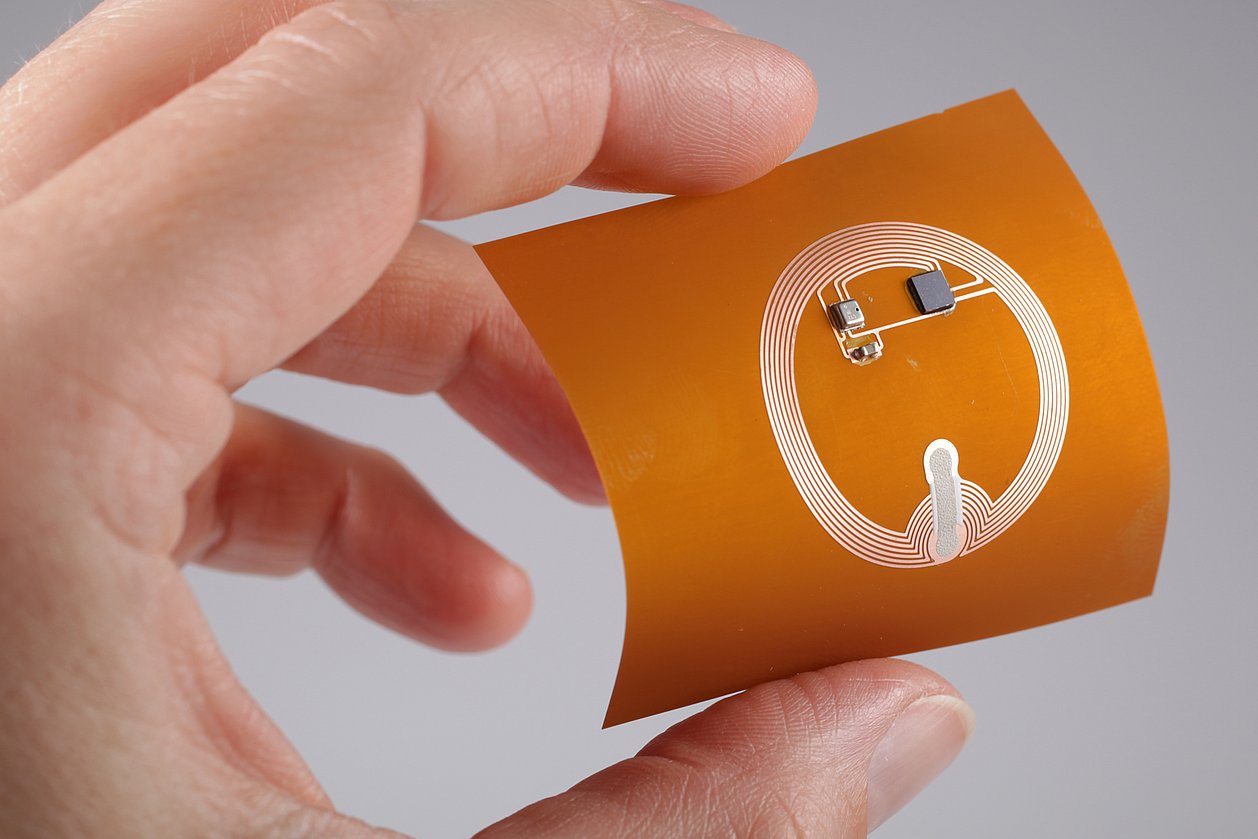Maximilian Wiener, M.Sc., Analog IC Design Engineer
“I have been working since December 2018 as circuit designer for analogue integrated circuits. The flexible hours of work and interdisciplinary activities nurtured my development on all fronts, academic and personal. Working in an inter-national team and with colleagues from different subjects enables me continuously to extend my own skills and to digest the new knowledge I am constantly acquiring.“
“I had my first contact with IMMS in my fifth semester in Ilmenau TU. It was Professor Sommer who gave me an insight into the widely varied fields of activity of the Institute. My interest awakened, I applied for a post as a paid part-time student so that I could reinforce the theory I was learning on my degree course by regular practical activity in the Industrial Electronics and Measurement division of IMMS. In my seventh semester, I had my compulsory internship and wrote my BSc thesis at the Erfurt part of the Institute in the Microelectronics division on designing an ultra-low-power ring oscillator for use in time-to-digital converters.
In parallel with my MSc course, I continued my part-time student job at IMMS so that I could transfer the results of my BSc dissertation into complete circuit design. Doing so, I contributed to the design of a sensor chip which was a product of the RoMulus project. RoMulus has as its aim the development of robust sensors of potential usefulness in monitoring Industry 4.0 applications. Then I wrote my MSc dissertation on system design for a capacitive low-power humidity sensor with adaptive resolution to be used in self-powered wireless sensors. Finding my subject for myself, receiving professional sup-port and using the skills I had obtained so far were an excellent career start. There were major challenges which gave me the chance to extend my horizons because I had to solve new, more complex circuit problems.
As soon as I had defended my MSc I leapt at the opportunity of continuing my activity at IMMS and have been working since December 2018 as circuit designer for analogue integrated circuits. The experience I gained over several years as a student has provided me with a seamless transfer into the role of full employee – as good a launch into a scientific career as I could wish. My work at the Institute in parallel with my studies and my tackling of various subjects in several of the IMMS divisions familiarised me rapidly with the structure and staff of the Institute.
The flexible hours of work and interdisciplinary activities nurtured my development on all fronts, academic and personal. Working in an inter-national team and with colleagues from different subjects enables me continuously to extend my own skills and to digest the new knowledge I am constantly acquiring. And so I would say: IMMS offers excellent opportunities to both students and staff to extend their skills in deeply interesting subjects that are closely related to practice.“
Related content
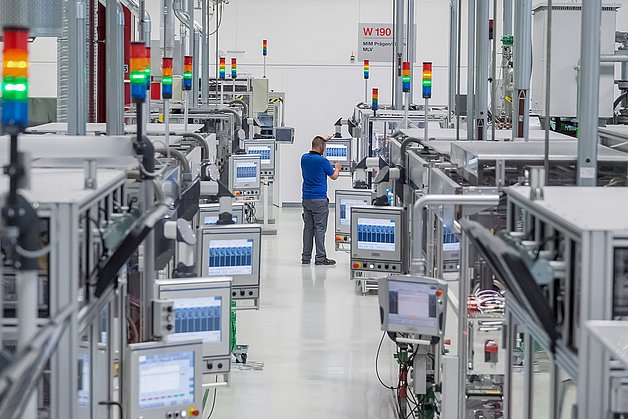
Project
RoMulus
Systematic design and economical manufacture for intelligent multi-sensor systems in small quantities
Point-of-care solution for rapid monitoring of cytokine release syndrome by chemiluminescence cytokine detection on sensitive Single Photon Avalanche Diodes (SPAD) sensors
A. Lopes1. P. Scholz1. S. Allelein1. A. Kölsch1. E. Schäfer2. M. Wiener2. B. Saft2. N. Isserstedt-John3. D. Kuhlmeier1.18. Research Festival for Life Sciences, 30. Januar 2025, Leipzig
1Fraunhofer-Institut für Zelltherapie und Immunologie IZI, Leipzig. 2IMMS Institut für Mikroelektronik- und Mechatronik-Systeme gemeinnützige GmbH, Ehrenbergstraße 27, 98693 Ilmenau, Germany. 3microfluidic ChipShop, Jena.Enhancing Chemiluminescence-Detection with Dark-Count Rate Optimization Strategies for SPADs in Conventional CMOS Technologies
Benjamin Saft1. Alexander Zimmer2. Maximilian Wiener1. Mirjam Skadell2. Eric Schäfer1.ISSW 2024, The International SPAD Sensor Workshop & the SPAD SENSOR SCHOOL, Trento, Italy, June 3 - 6, 2024
1IMMS Institut für Mikroelektronik- und Mechatronik-Systeme gemeinnützige GmbH, Ehrenbergstraße 27, 98693 Ilmenau, Germany. 2X-FAB Semiconductor Foundries GmbH, Erfurt, Germany.SPAD-Based Sensor IC for chemiluminescence assays in microfluidic channels
Alexander Zimmer1. Benjamin Saft2. Maximilian Wiener2. Jakob Hampel2. Mirjam Skadell1. Eric Schäfer2.Conference of Science & Technology for Integrated Circuits (CSTIC), Shanghai, China, March 17-18, 2024, DOI: doi.org/10.1109/CSTIC61820.2024.10531988
1X-FAB Global Services GmbH, Erfurt, Germany. 2IMMS Institut für Mikroelektronik- und Mechatronik-Systeme gemeinnützige GmbH, Ehrenbergstraße 27, 98693 Ilmenau, Germany.Design of a Capacitive Humidity Sensor Frontend with an Adaptive Resolution for Energy Autonomous Applications
Maximilian Wiener1. Benjamin Saft1.2019 15th Conference on Ph.D Research in Microelectronics and Electronics (PRIME), 15 - 18 July 2019, Lausanne, Switzerland, 2019, pp. 137-140, DOI: doi.org/10.1109/PRIME.2019.8787836
1IMMS Institut für Mikroelektronik- und Mechatronik-Systeme gemeinnützige GmbH, 98693 Ilmenau, Germany.


